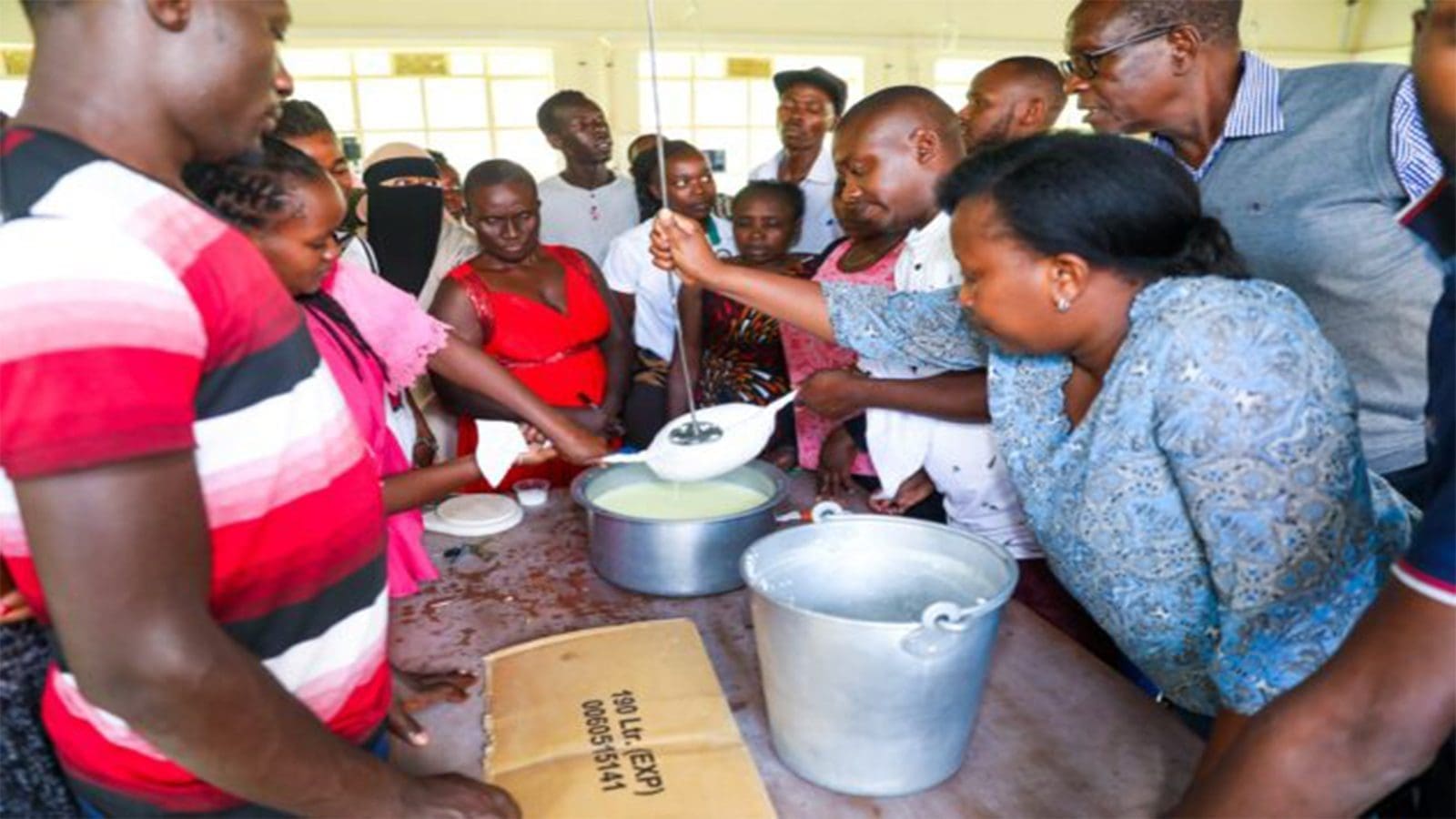KENYA – A training on hygienic milk handling and processing held at the Dairy Training Institute and sponsored by the Agricultural Sector Development Support Programme (ASDSP 11) under the County Food, Agriculture, and Forestry Sub Sector has benefited over thirty people working in the Nairobi County Cow milk value chain, including women and young people involved in the milk industry.
Agricultural Sector Development Support Programme (ASDSP 11) is a programme run by the County Food, Agriculture, and Forestry Sub Sector that aims to turn agricultural, livestock, and fishery production into economically oriented firms that guarantee long-term food and nutrition security.
To boost income, food security, and nutrition, Nairobi County is concentrating on three main areas: cow milk, broiler chicken, and kale.
During the four-day training, the participants learned about legal aspects of dairy business operations, hygienic milk production, handling, and preservation, milk testing, cleaning, and maintenance of dairy equipment, milk cream separation, and treatment, as well as pasteurized milk processing, fermented milk, and flavor-infused milk.
The participants were also trained on how to process butter, ice cream, yoghurt, mala, cheese, and ghee.
The participants were chosen from all seventeen sub-counties, according to Mr. John Magu, the County Agricultural Sector Development Support Program Coordinator, to equip and empower them with knowledge of milk handling and processing.
“Nairobi County is determined to capacity build and give skills to our youth so as to enable them better their dairy businesses hence increase their income as well give tips to those willing to venture into milk processing business.
“From here, We expect trainees to use the knowledge gained from the training to better themselves and train others,” said Mr. Magu.
Magu commended His Excellency Governor Sakaja Johnson for his support of the ASDSP project and for making sure Nairobi farmers have the tools they need to produce food and create jobs in the agribusiness sector.
He also expressed his gratitude to the County Executive in charge of Green Nairobi, Ms. Maureen Njeri, and Mr. Hibrahim Otieno, Chief Officer for Environment and Natural Resources and Acting Chief Officer for Food, Agriculture, and Forestry, who he said have been at the forefront of supporting ASDSP 11 projects to ensure that City farmers producing kale, broiler, and milk in all 85 wards of Nairobi improve their operations, increase their income, and create jobs.
Mr. Philemon Lagat, the County ASDSP Monitoring and Evaluation Officer, urged the participants to concentrate on the milk processing value chain because it generates immediate profits, as reported by Capital News.
The dairy value chain is one of the most dynamic sectors in Kenya and critical to the country’s rural economy.
According to data from the United States Agency for International Development (USAID), it is currently valued at over KSh184 billion (US$2.1 billion) and contributes 6-8 percent of GDP.
The trainees expressed their appreciation to the County Government of Nairobi for supporting them and providing them with the knowledge they needed to expand and improve their milk businesses, generating more revenue and job possibilities.
For all the latest food safety news from Africa and the World, subscribe to our NEWSLETTER, follow us on Twitter and LinkedIn, like us on Facebook and subscribe to our YouTube channel.








